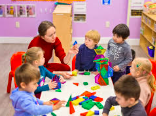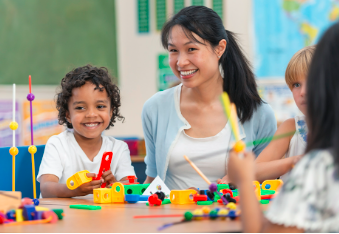Play is more than just fun for young children—it’s a vital part of early learning and development. Through play, children naturally explore their surroundings, test ideas, and solve problems in creative ways. Encouraging problem-solving through playful experiences helps build a strong foundation for cognitive development, social-emotional growth, and school readiness.
Why Problem-Solving Matters in Early Childhood
Problem-solving is a key life skill that supports independence, confidence, and resilience. When children learn to work through challenges, they gain important abilities such as reasoning, decision-making, and perseverance. These skills benefit children not only in academic settings but also in everyday situations, from resolving peer conflicts to figuring out how to stack blocks without them falling.
The Role of Play in Developing Problem-Solving Abilities
Play offers a low-pressure environment where children can try new ideas without fear of failure. Whether they are engaging in pretend play, constructing with building toys, or participating in group games, children encounter opportunities to think critically and test solutions.
For example:
-
Puzzles and matching games require children to recognize patterns, test pieces, and think ahead.
-
Building blocks and construction sets promote experimentation with balance, structure, and design.
-
Role-playing games help children explore different perspectives and work through social scenarios.
-
Outdoor play encourages exploration and physical problem-solving, such as figuring out how to climb a structure or navigate an obstacle.
How Adults Can Support Problem-Solving Through Play
Parents, caregivers, and educators can strengthen children’s problem-solving abilities by creating play environments that inspire curiosity and challenge. Here are a few strategies:
-
Offer open-ended materials like cardboard, string, and natural objects to spark creativity.
-
Ask guiding questions such as, “What do you think will happen if…?” or “How could you fix that?”
-
Encourage children to try different approaches rather than stepping in too quickly with answers.
-
Celebrate effort and persistence instead of focusing only on outcomes.
Creating a Play-Friendly Space for Growth
To foster problem-solving at home or in a classroom, provide children with time, space, and diverse materials for exploration. Rotating toys and setting up new play themes can keep experiences fresh and engaging. Even simple household items like cups, boxes, or spoons can be used in inventive ways.
Final Thoughts
Through playful experiences, children develop essential thinking skills that prepare them for lifelong learning. By allowing time for open-ended play and offering thoughtful support, adults help young learners grow into confident and capable problem-solvers—one playful challenge at a time.


